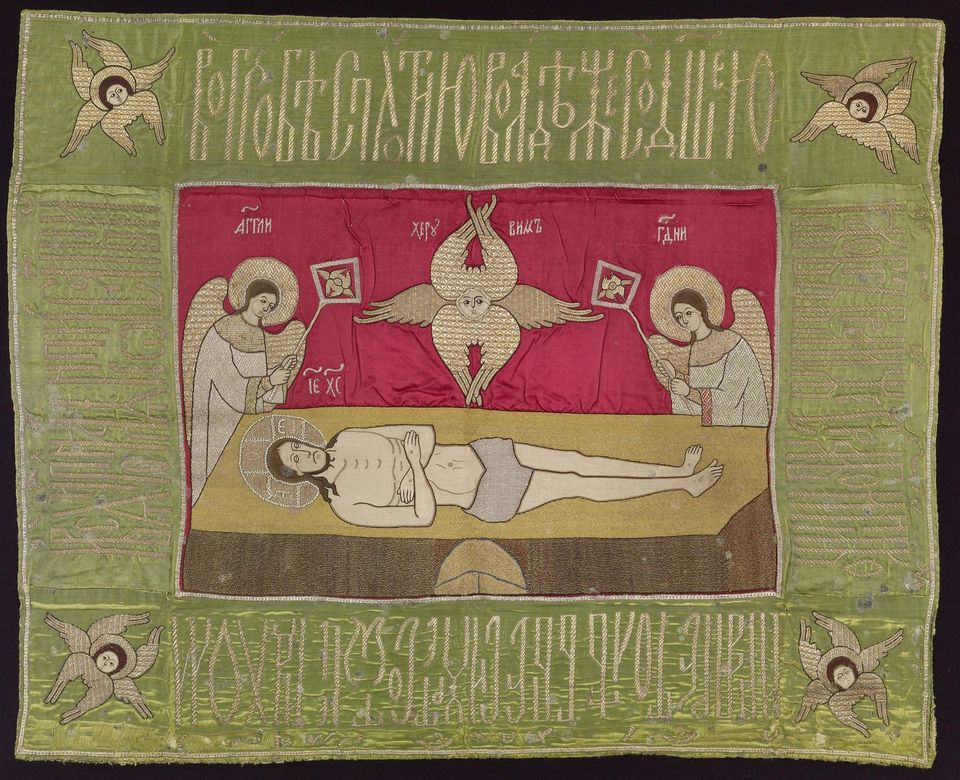Byzantine Traditions

The Blessing of Homes
Customarily, homes are blessed on the days following January 6th, but may be blessed anytime. A cross or icon in a prominent place becomes the focus of God's presence in our home.
Meatfare Sunday
Meatfare Sunday is the last day on which it was still permissible to eat meat before the Great Fast. Meatfare means "farewell to meat." Hence, the name "meatfare" Sunday. This is reflective of the time when the Great Fast was observed in all strictness. After the Divine Liturgy, various selections of meat products are blessed and shared.
Cheesefare Sunday
On Cheesefare Sunday, the day before the beginning of the Great Fast, we share blessed foods of fish, eggs, and cheese following the Divine Liturgy. Cheesefare Sunday - so called because it is the last day to eat cheese and other dairy products before the beginning of Great Lent.
The Blessing of the Pascha Baskets
In the Church, Sunday of the Resurrection of Jesus (Easter) is a day without parallel with joyful celebration. The celebration includes the Blessing of the Pascha Baskets which contain foods not eaten during the fasting of the Great Lent... meats, eggs, cheese, butter, rich breads, and more... The "forbidden" foods of Great Lent become the foods of the Easter Banquet. It is customary to break one's Easter Fast with foods blessed now.
Each basket is covered with a cloth usually embroidered with the words "Christ is Risen". The basket's contents vary from family to family regarding additional meats, wine, pastries, candy, and other treats.
These articles are placed in a wicker basket and a ribbon or bow is tied to the handle. A decorated candle is placed in the basket and is lit at the time of blessing. A linen cover usually embroidered with a picture of the Risen Christ or symbol with the words "Christ is Risen" is placed over the foods when brought to the church. In some places, a large Easter Bread (Pascha) is made and brought separately in a large linen cloth. If the origin of the people was from a wine-growing region, a sweet wine may be brought.
For more information on Pascha Baskets: Putting Together a Traditional Easter Basket
The Blessing of Fruit
On August 6th, the Transfiguration of Jesus, which occurs during the harvest season, the Faithful bring fruit to the Church to be blessed. The blessing of fruit on this day is the most beautiful and adequate sign of the final transfiguration of all things in Christ. It signifies the ultimate flowering and fruitfulness of all creation in God's Paradise where all will be transformed by the glory of the Lord.
The Blessing of Flowers
According to our Byzantine Catholic Tradition, flowers are solemnly blessed on the Feast of the Dormition of the Mother of God. Tradition speaks of the Apostles returning to the tomb of Mary. Finding it empty, her tomb was filled with a heavenly fragrance and flowers were present where her body once lay. Since Mary could only have been taken up by the Lord, flowers are seen as the presence of His saving Power. As a reminder of this event, flowers are brought to the Church and blessed.